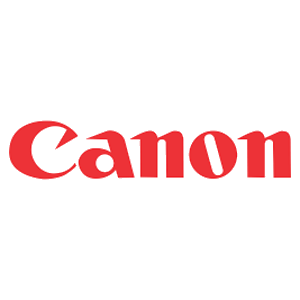When Greenpeace protesters convened outside last year's Macworld Expo, Apple CEO Steve Jobs dismissed the environmentalists by suggesting they "get out of the computer business [and] go save some whales."
At this year's Macworld, it was a different story. There were no protesters pounding on the Moscone West doors. Indeed, after introducing the svelte Macbook Air on Tuesday, Jobs took a moment to do something he's never done while introducing a new product at Macworld: Update the audience on its environmental specs. What's more, he said he would continue to do the same with every major product introduction in the future.
"We continue to make progress on all of these environmental fronts, and we'll keep you posted," Jobs said. "They all add up to something in the end, and we're very conscious of this."
Apple is the latest in an increasing list of consumer electronics and computer companies starting to address (and mitigate) the environmental impacts of their products. Computer manufacturers such as Dell, H.P. and Lenovo have been taking back old computers for recycling for several years. Sony began collecting old televisions for voluntary recycling in the United States starting in September 2007. And at the 2008 International Consumer Electronics Show in Las Vegas last week, many manufacturers gave lip service to greening their product lines, although few gave substantial evidence that they were actually doing that.
Among other highlights Tuesday, Jobs cited the fact that the new Macbook Air is clad in a fully recyclable aluminum case and stated that aluminum is one of the most recyclable materials on the market.
Jobs also told audience members that the Macbook Air will include the company's first mercury- and arsenic-free display and that all of the Apple-designed circuit boards -- which are the vast majority of the circuit boards in the unit -- are free of brominated flame retardants (BFRs) and polyvinyl chloride (PVC) plastic, two substances commonly found in consumer electronics that critics say pose hazards to the environment and to human health.
Yet the sum total of these self-described eco-milestones didn't impress Greenpeace. Reacting to Jobs' keynote, the lobbying group says the company still has a long way to go if it wants to set any kind of environmental standard for the rest of the tech industry.
"Apple is getting greener, but not green enough," said Rick Hind, the legislative director of Greenpeace's toxics campaign. "The Macbook Air has less toxic PVC plastic and less toxic BFRs, but it could have zero and that would make Apple an eco-leader," he added.
While applauding Jobs' new focus on environmental specs, Greenpeace noted that Jobs did not outline Apple's plans to honor its 2007 pledge to eliminate these toxics materials in all Apple products by the end of 2008.
That pledge was made in an open letter (.pdf) Jobs published last May. While it didn't address Greenpeace specifically, the letter was undoubtedly a reaction to the group's previous eco-critiques and sought to position Apple as a leader in environmentally sound manufacturing.
Then, as now, Jobs' statement did little to appease Greenpeace. The following months saw even more squabbling between the two parties, with Greenpeace refocusing its attention on the iPhone and publishing a report that claimed that the highly sought-after device contained hazardous chemicals such as brominated compounds and toxic phthalate esters.Other activist groups, like the nonprofit Center for Environmental Health, even used those findings as the basis for a lawsuit against Apple. Citing California's Proposition 65, also known as the "Safe Drinking Water and Toxic Enforcement Act of 1986," the CEH claimed that while the levels of chemicals in the iPhone were technically legal, Apple couldn't expose consumers in California to the phone's chemicals without warning them of that exposure.
A spokesman for the CEH now says that Apple has responded to the group's notice and that lawyers from both sides are working on an agreement.
Despite a year of critiquing Apple's environmental track record, Greenpeace maintains it's not a case of eco-bullying, as Apple and others have alleged.
"Apple sometimes gets really defensive," Hind admits. "They say: Why are you picking on us -- especially when we have such a small market share compared to the rest of the industry?"
The reason, according to Hind, is simple. Apple is seen as a tech leader, especially when it comes to innovation. Even though companies like Dell and HP are much larger and ship many more computers, Greenpeace singles out Apple in order to draw attention to the whole tech industry's eco policies, Hind says.
Apple did not immediately respond to Wired's requests for comment, but it's clear that with Tuesday's "green moment" from Jobs, this effort to address environmental issues will increasingly play a major role in Apple's upcoming product introductions.
And while the back-and-forth between Apple and Greenpeace is ostensibly about responsible environmental policies, it's also important to remember that it's also a battle between two very sophisticated PR teams. If Jobs' keynote is a sign of things to come, Apple is now acutely aware of the importance of being perceived as green.





